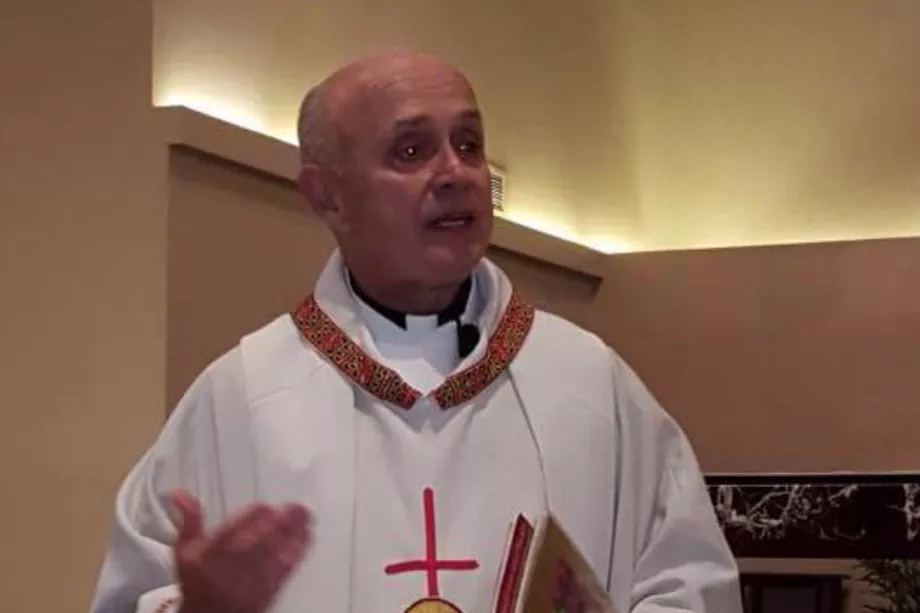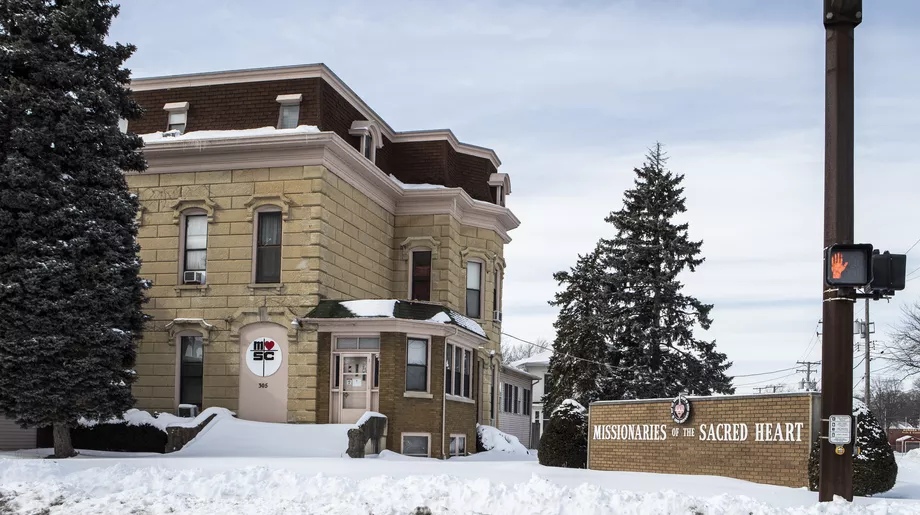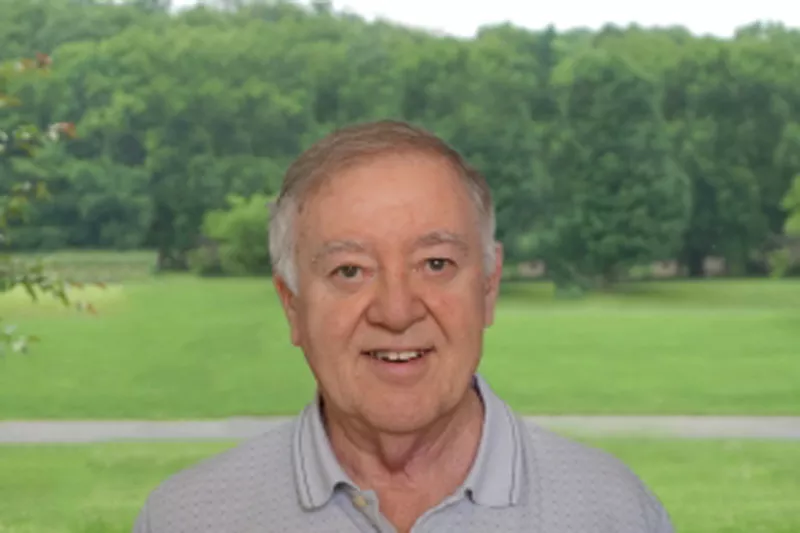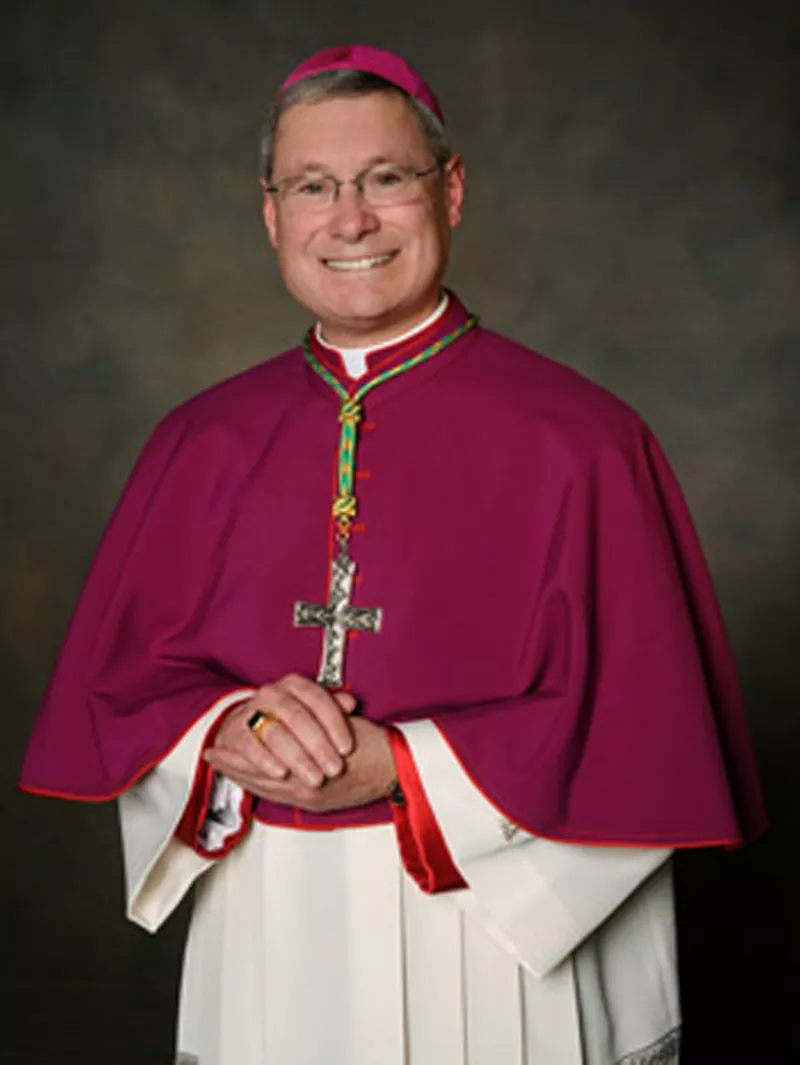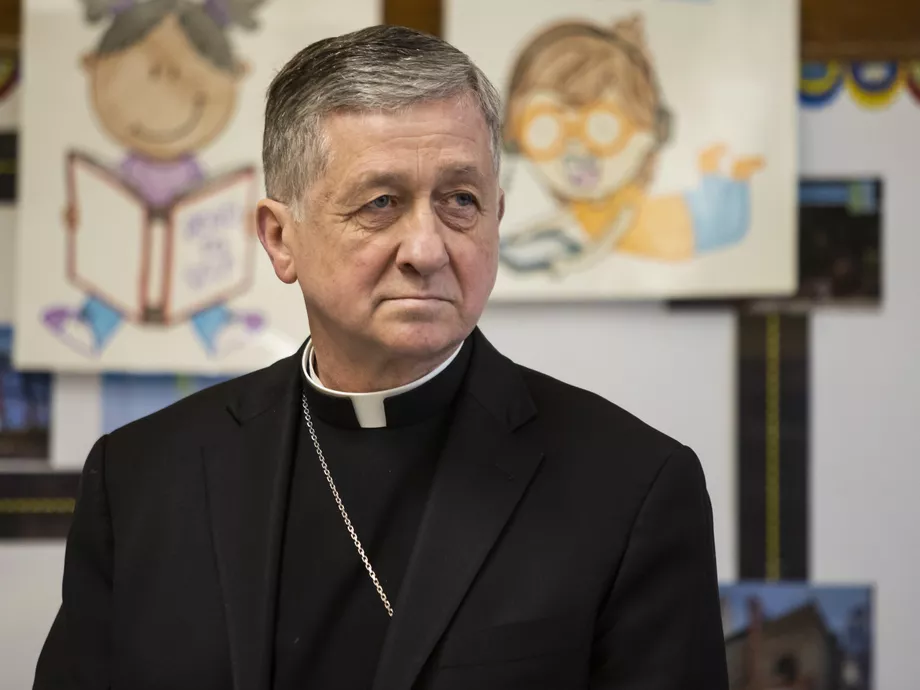California Bishop Banned Priest, but That Didn’t Keep Him from Ministry around Chicago
By Robert Herguth
While ministering in San Bernardino, California, in 2014, a Chicago-area priest named Joseph Jablonski told a boy something that prompted the bishop’s office there, when it found out, to notify the authorities and bar him from ever again ministering in that diocese. The bishop’s office decided that Jablonski’s words — deemed to be an attempt at “grooming” for a possible sexual encounter — amounted to “sexual abuse,” according to records and interviews. But that didn’t prevent Jablonski from continuing over the next several years to serve as a priest in other places — including Chicago, Aurora and Joliet. That’s because, although the Diocese of San Bernardino immediately notified Jablonski’s religious order — the Missionaries of the Sacred Heart, whose Chicago-area headquarters is in Aurora — the order, which describes what happened as “an inappropriate conversation,” kept things quiet. Records and interviews show that for at least a few years: It didn’t inform the Diocese of Rockford, which includes McHenry and Kane counties, where Jablonski was based and had served at an Aurora parish in 2010 and, briefly, 2018. Nor did it immediately notify the Diocese of Joliet, which covers DuPage and Will counties and includes a parish where, according to the church bulletin, Jablonski said Mass, preached and offered spiritual sessions while working as a visiting priest in 2016. And it didn’t initially notify the Archdiocese of Chicago, which includes Cook and Lake counties, where Jablonski also has officiated since the 2014 incident and formerly lived at a South Side parish. “The provincial at the time didn’t feel any obligation to contact any other diocese,” the Rev. Richard Kennedy, who has led the order’s U.S. province since 2018, says of his predecessor.
“Whether or not that was prudent,” Kennedy says, Jablonski “was formally corrected and criticized” by his order “for getting himself in this situation.” Kennedy says there have been no other substantiated allegations of child sexual abuse against Jablonski. Jablonski, who’s now in his 70s, wasn’t charged with any crime in San Bernardino. He couldn’t be reached. His Facebook page says he’s living in Colombia, where he has served as a priest. Kennedy says Jablonski is leaving the order, which operates around the world. The 2014 San Bernardino incident attracted little notice until 2018. That’s the year the latest wave of scandal erupted in the Roman Catholic church, following the release of a Pennsylvania grand jury report that revealed decades of child rape by priests and coverups by bishops. That year also saw accusations that former Washington, D.C., Cardinal Theodore McCarrick had molested minors and bedded young adult seminarians. The San Bernardino diocese published a public list of what it described as credibly accused priests in late 2018, and Jablonski was on it. A few months later, a group of lawyers who have been suing the church around the country over sexually abusive priests also published a list there. In March 2019, the group of attorneys released a similar list for Illinois priests, and Jablonski was on it. Also that month, Rockford Bishop David Malloy “learned that Joseph Jablonski was identified on the published list of priests with substantiated allegations at another diocese,” according to Ellen Lynch, the legal counsel and chancellor for Rockford’s diocese. “On that same day, Joseph Jablonski’s faculties” — permission for him to minister in a church jurisdiction — “were removed in the Diocese of Rockford, per our policy. On that same day, Joseph Jablonski was added to [the] diocesan published list.” Kennedy says he and a “safety board” whose members advise him met and discussed Jablonski. “We agreed with Bishop Malloy that Father Jablonski would no longer function as a Catholic priest anywhere,” the Missionaries of the Sacred Heart provincial says. Rockford, Joliet and Chicago “were the only dioceses where he had permission to function as a priest,” according to Kennedy, who says that, at that point, Malloy notified his counterparts in those church jurisdictions. According to the Joliet diocese, officials there actually were notified by the order “that Rockford had removed Jablonski’s faculties in March 2019. The Diocese of Joliet revoked his faculties the same day this notice was received. Jablonski has not performed any ministry in Joliet since then.”
Kennedy says, “There are barriers that we’re supposed to observe, especially with minors, and he crossed that barrier.” Cardinal Blase Cupich, who oversees the Chicago archdiocese, would not comment. The Rev. Raymond Diesbourg, Kennedy’s predecessor as the U.S. leader of the Missionaries of the Sacred Heart, says he recalls what happened slightly differently. He says Jablonski was pulled from public ministry after San Bernardino’s list was published in late 2018. Diesbourg says Jablonski was still allowed to minister after the 2014 incident after the priest was sent for an “evaluation” at a facility near St. Louis.
“They said, ‘It doesn’t seem like he’s a danger,’ ” and that nothing physical “ ‘happened, so we think it’s OK for him to continue in ministry,’ ” says Diesbourg, still with the order and now serving in upstate New York. “I sent that to San Bernardino, and they said, ‘We still don’t want him.’ ” Diesbourg says that, before leaving his job as provincial in late 2018, he contacted the Chicago archdiocese, described the situation and asked for guidance about Jablonski. He says he was told words to the effect of: “We’ll give him the benefit of the doubt.” According to Kennedy, Diesbourg’s successor, Jablonski said “nothing sexual happened. And that’s true. But . . . he did involve himself in an inappropriate conversation.” “It was not a sexual solicitation,” Kennedy says. “It was just inappropriate, and the young man who complained — he complained to the diocese [in San Bernardino]. He felt very uncomfortable with this conversation.” Diesbourg says the conversation involved Jablonski “encouraging” the boy “to be comfortable with his sexuality. I think the Diocese of San Bernardino thought” it amounted to “grooming” him for a possible sexual encounter.
Says Kennedy: “If a complaint were filed today, it’d be handled in a much different way.” Diesbourg agrees: “What I know now, given the present setup and how things are evolved, you notify everyone right away.” Church officials are supposed to respond to any report of abuse — from a religious order or from anywhere else — by contacting law enforcement, removing the cleric from public ministry while the church also investigates and offering “support” such as counseling to any accusers. If an allegation of sexual abuse is made against an order cleric, the Catholic church asks that his order notify every diocese where he served or where any offenses might have been committed. That also was the expectation by the church in 2014. But some cases involving clerics from religious orders have slipped through the cracks in terms of being reported to dioceses, the Chicago Sun-Times reported earlier this month. Around Chicago, some orders continue to keep secret the names and past assignments of clerics deemed to be child sexual predators. Dioceses are based on geography, with each headed by a bishop. Religious orders are groups of priests and other clerics that often extend beyond the boundaries of a particular diocese, focus on a specific mission and identify with a particular philosophy or saint. Kennedy’s order, for instance, describes itself as “an international congregation of religious priests and brothers who reach out to those who are poor — materially, emotionally or spiritually — to bring God’s compassionate and tender love to all.” Orders have their own leaders and operate relatively independently within dioceses, though they need permission from the local bishop if they engage in public ministry there. At the time of the 2014 incident in San Bernardino, Jablonski did not have formal permission to be ministering there as a visiting cleric offering spiritual retreats or in any other capacity, officials say. Religious orders and dioceses aren’t required to create publicly available lists of substantiated sexual misconduct claims against their members. But church leaders encourage them to do so. And most U.S. dioceses now have publicly available lists. Many of them include names of not only their diocesan clergy — those who operate directly under the bishop’s authority — but also any order priests who have served in their jurisdictions who have been found to have committed acts of sexual abuse there or elsewhere.
But Chicago’s archdiocese does not include clerics from most orders, the Sun-Times reported, even though several orders said Cupich has demanded they provide such information, and they have complied. So the Chicago archdiocese’s list doesn’t include Jablonski. Joliet’s diocese posted Jablonski’s name on its list after being contacted by the Sun-Times. Jablonski’s order published its own list within the past two years, and he is among a dozen clerics on it. He’s the only one who is still living.
|
.
Any original material on these pages is copyright © BishopAccountability.org 2004. Reproduce freely with attribution.
